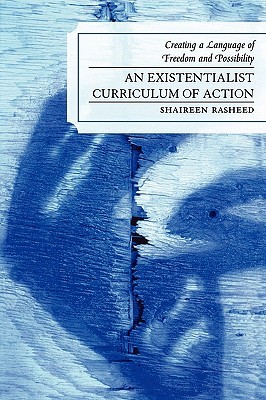
- We will send in 10–14 business days.
- Author: Shaireen Rasheed
- Publisher: University Press of America
- ISBN-10: 0761835911
- ISBN-13: 9780761835912
- Format: 15.2 x 22.9 x 0.6 cm, softcover
- Language: English
- SAVE -10% with code: EXTRA
Reviews
Description
This book contextualizes Maxine Greene's educational pedagogy within an existentialist tradition. By drawing on the works of Jean-Paul Sartre, Paulo Freire, and Merleau-Ponty, Professor Rasheed analyzes how Greene's work represents an advance in existentialist discourse via her interpretation of concepts, such as choice, freedom, and possibility within an educational setting. The aim of this work is to create an "existentialist curriculum of action" that is grounded in a vision of leadership. Educators, teachers, students, policy makers, and curriculum theorists can implement this critique as part of an emancipatory and transformative pedagogy. By developing an ethical language of existential possibility, Professor Rasheed creates a space where discourse explores the various intersections of gender, race, class, ethnicity, religion and sexual orientation, which coexist within a participatory definition of democracy.
EXTRA 10 % discount with code: EXTRA
The promotion ends in 11d.19:35:50
The discount code is valid when purchasing from 10 €. Discounts do not stack.
- Author: Shaireen Rasheed
- Publisher: University Press of America
- ISBN-10: 0761835911
- ISBN-13: 9780761835912
- Format: 15.2 x 22.9 x 0.6 cm, softcover
- Language: English English
This book contextualizes Maxine Greene's educational pedagogy within an existentialist tradition. By drawing on the works of Jean-Paul Sartre, Paulo Freire, and Merleau-Ponty, Professor Rasheed analyzes how Greene's work represents an advance in existentialist discourse via her interpretation of concepts, such as choice, freedom, and possibility within an educational setting. The aim of this work is to create an "existentialist curriculum of action" that is grounded in a vision of leadership. Educators, teachers, students, policy makers, and curriculum theorists can implement this critique as part of an emancipatory and transformative pedagogy. By developing an ethical language of existential possibility, Professor Rasheed creates a space where discourse explores the various intersections of gender, race, class, ethnicity, religion and sexual orientation, which coexist within a participatory definition of democracy.


Reviews